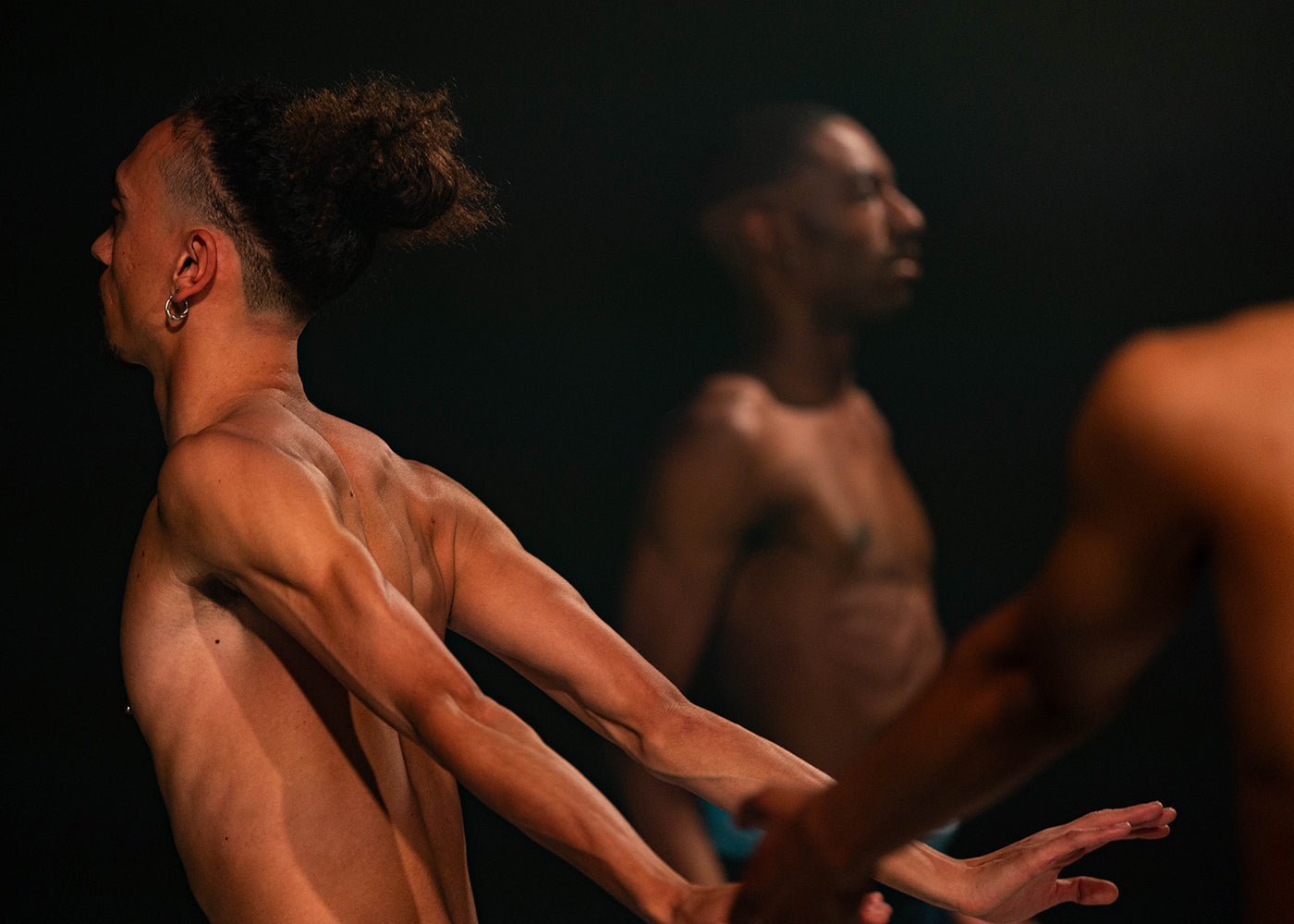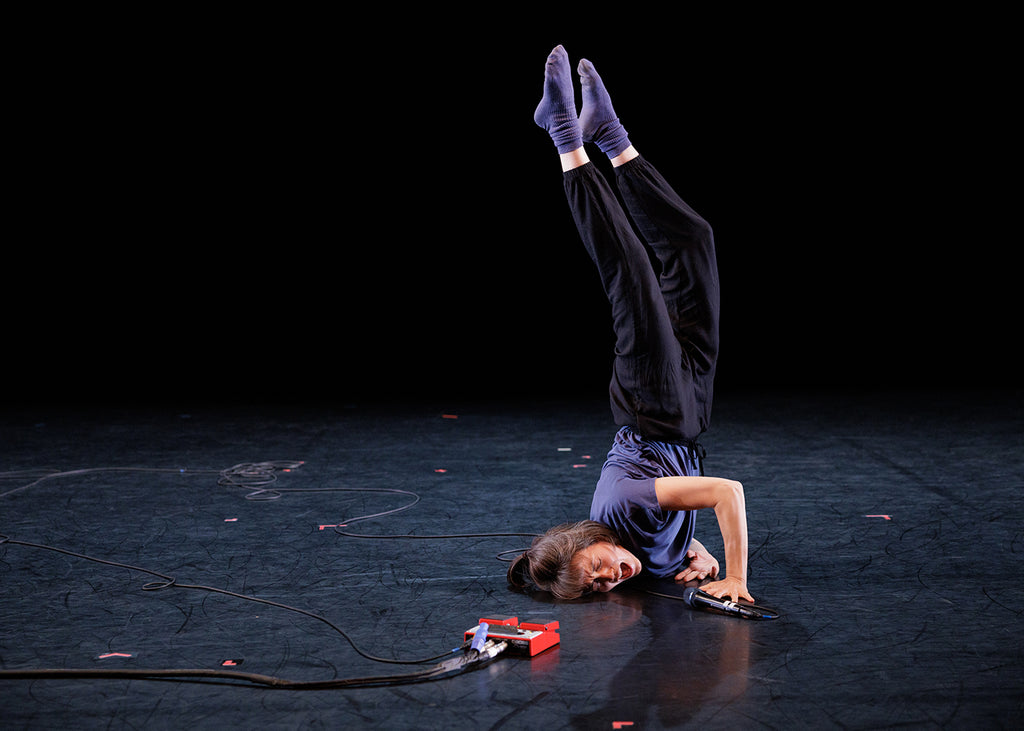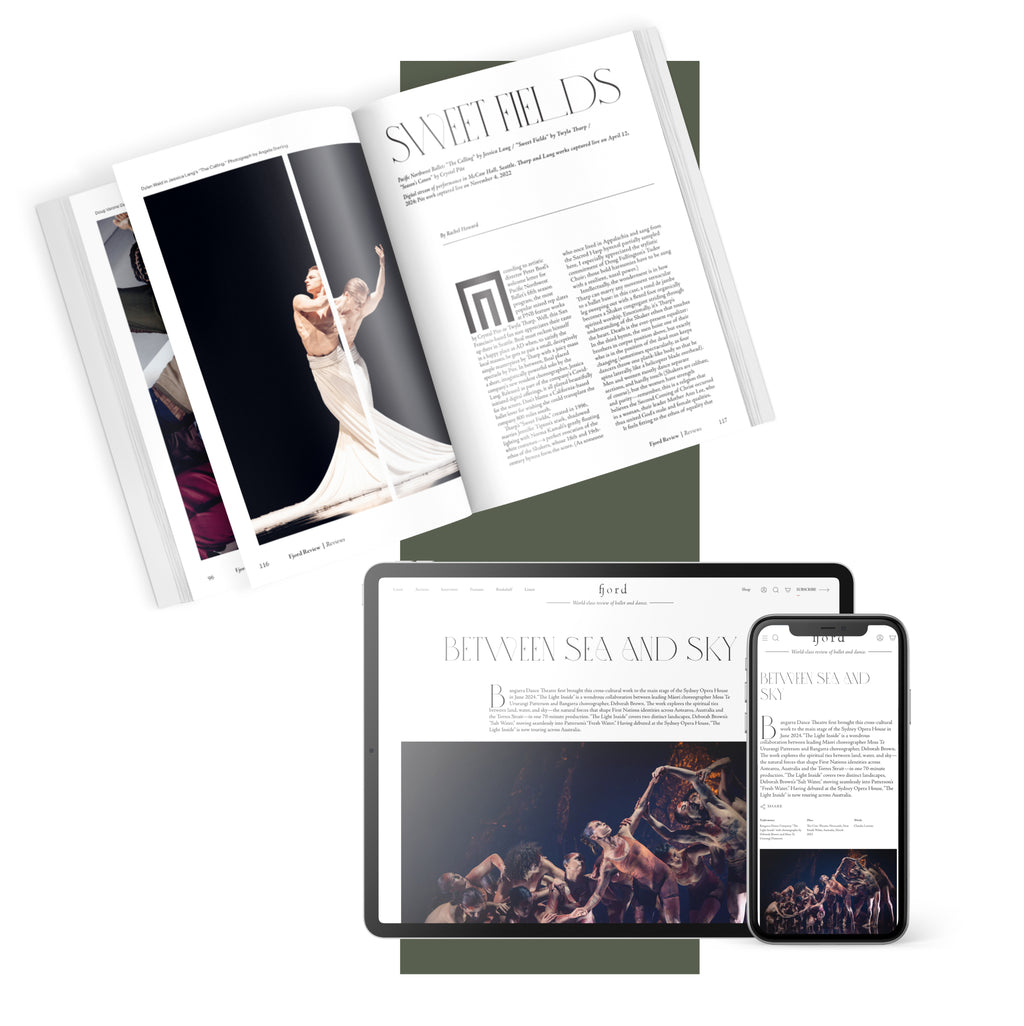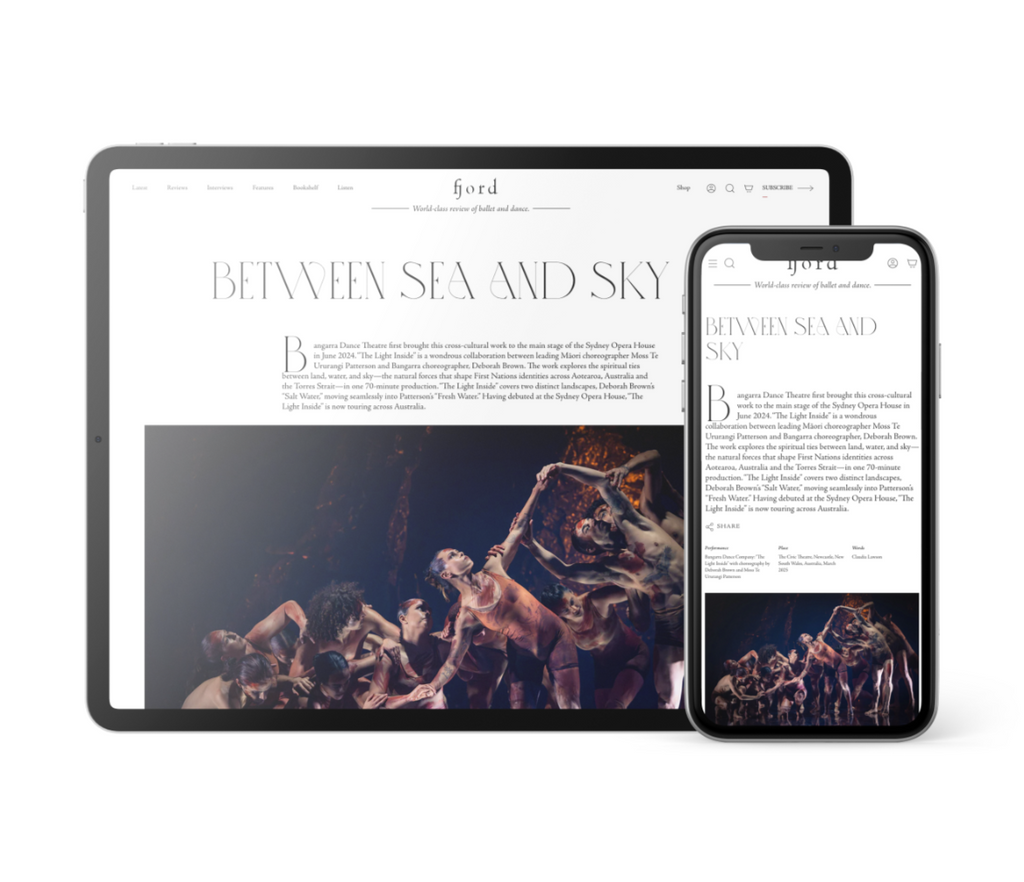Likewise, Maxi Hawkeye Canion’s multimedia solo “flesh-talker,” is mythical and strange, with elements of body horror and humor. Canion is a horned creature, covered in bandages and blood presumably from some kind of metamorphosis. But Canion is also the voice of hope, or at least a character of the same name talking to their mom about not being able to believe when something is not butter and the very pedestrian fact that Blue Bottle is hiring. Snippets of real life and the past, via home movies, continually collide with their fantasy world. Though Canion grapples in an arena of water and blood, putting on thigh-high boots that are missing their sky-high heels, the projected scene of the artist as a young adult, smiling and holding a cake full of candles, is the hardest image to shake.
In contrast, “Superposition,” by Jade Manns feels more expected in its postmodern abstraction. Yet there is an itchy inventiveness to Manns’ movement score, for a quartet that does not include herself. Two dancers locked in an embrace on the floor, roll and shift across the stage. Without letting go they stand up and continue the maneuver while running. The others pursue animal instincts in the flourishes of their arms and heads. Short movement sequences repeat several times before changing, creating an expectation that the repetition may eventually yield some kind of comfort. Instead, the dancers simply move on to the next task, repeating the movement or phrase inside its own discrete parameters, until an abrupt blackout signals the end.
And while Ayodele Casel may best be described as a mid-career artist, well-established and respected in her tap oeuvre, her work never seems to lose its emergent quality. Each new show peels back layers of self and genre, never failing to delight and surprise. The powerful question underlying her work always asks: where and what am I emerging from?












comments